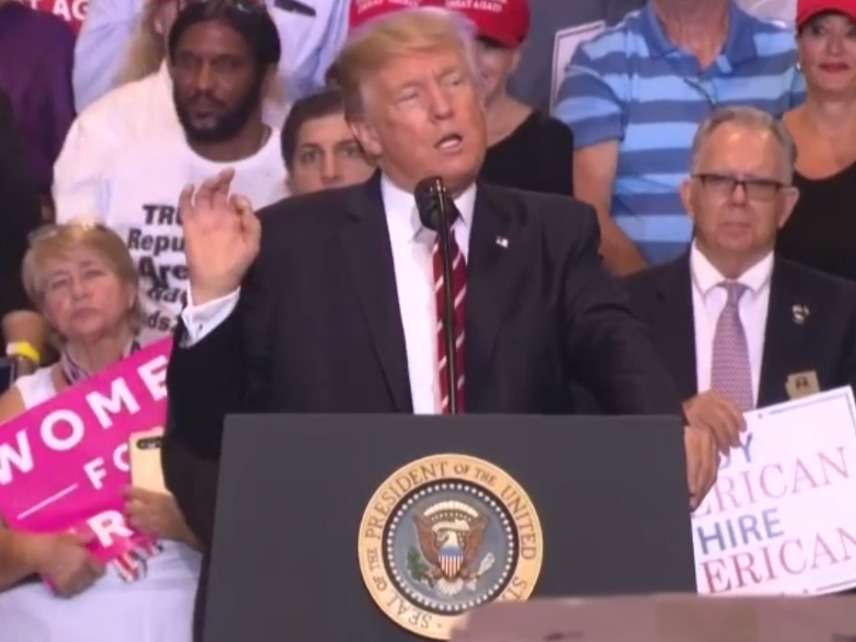The Times Thinks Deregulation Is Meddling If It Helps Religious People or Gun Owners
The paper says loosening rules "runs counter to the Trump administration's less-is-more credo about government meddling."

A New York Times story about Donald Trump's unlikely alliance with social conservatives bizarrely claims that loosening rules to which they object contradicts his deregulatory stance. Under the headline "Where Trump's Hands-Off Approach to Governing Does Not Apply," Ben Protess, Danielle Ivory, and Steve Eder report that the president is pursuing an "aggressive regulatory agenda" on behalf of socially conservative causes that "runs counter to the Trump administration's less-is-more credo about government meddling." Yet almost none of the examples they cite fit that description.
When the administration sides with religious groups that object to Obamacare's contraceptive mandate, it is supporting regulatory relief, not additional government meddling. Likewise when it rejects an interpretation of the Civil Rights Act that would bar employers from discriminating against workers based on sexual orientation. Whether or not you agree with those positions, they are perfectly consistent with deregulation.
Protess et al. also argue that reducing restrictions on firearms (which they debatably deem socially conservative) amounts to government meddling. The Trump administration has rejected a broad definition of the "fugitives from justice" who are forbidden to buy guns under federal law and abandoned a policy that prohibited guns on land managed by the Army Corps of Engineers, making the rules similar to those that apply in national parks. Again, you may or may not approve of those shifts, but they clearly resulted in more freedom, not less.
Cutting U.S. aid to foreign organizations that promote abortion is a kind of restriction, but it's a condition attached to the use of taxpayer money, as opposed to a direct mandate or prohibition. A "less-is-more credo" regarding the proper scope of government surely does not require using taxpayer money to promote abortion in other countries. Nor does it demand that guidelines for federal grants aimed at helping "victims of commercial sexual exploitation" specifically mention LGBTQ youth, which they no longer do under Trump.
The clearest example of new restrictions on freedom mentioned by the Times is Trump's crackdown on immigration, which is not unambiguously a favor to the religious right. Protess et al. note that some religious conservatives "disagreed with his move to end the program that blocks young undocumented immigrants from being deported." Opponents of ending Deferred Action on Childhood Arrivals reportedly included Jared Kushner, "Mr. Trump's Orthodox Jewish son-in-law," whom the Times mentions as a liaison between the administration and religious conservatives but whose personal politics are, like his wife's, socially liberal.
The Times perceives "a fundamental repurposing of the federal bureaucracy to promote conservative social priorities." It may be surprising that a serial adulterer, proud womanizer, notorious liar, and incorrigible braggart with no firm ideology or theology has emerged as a champion of social conservatives. But it is hardly surprising that after adopting that role, Trump would use his powers as president to shift policy in a conservative direction, just as Barack Obama used his to shift policy in a progressive direction. There is nothing scandalous about that, except to those who take it for granted that the former agenda is altogether appalling while the latter is entirely enlightened.


Show Comments (23)